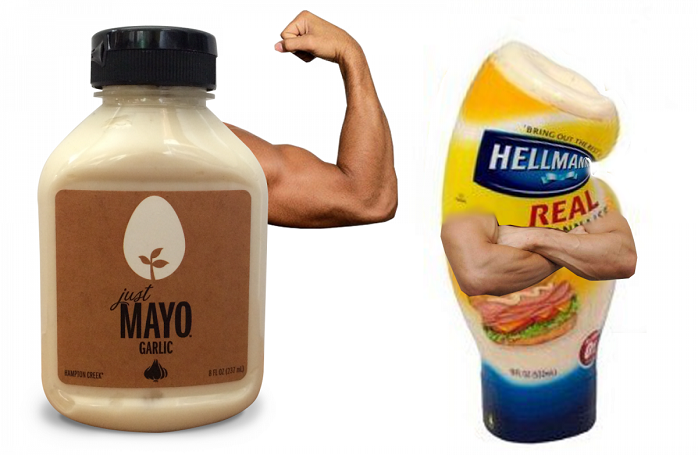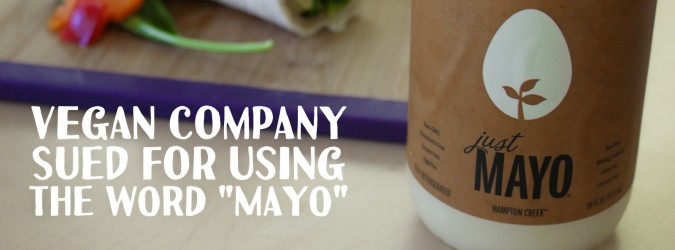In an article I published last fall, the maker of Hellman’s mayonnaise sued Hampton Creek Inc., the maker of Just Mayo, accusing the company of false advertising for calling its eggless spread “mayo”. But due to the negative publicity Unilever received which painted it as a corporate bully, they eventually dropped the suit. However, Hampton Creek’s worries have not disappeared as they are now facing another legal challenge.
Earlier this month, a class-action lawsuit was filed in Florida state court again stating, among other things, that Just Mayo is misleading and therefore “misbranded” in violation of federal law. Unlike the previous suit, these plaintiffs are also asserting that Hampton Creek violated the Florida Deceptive and Unfair Trade Practices Act, which have more flexible standards than the federal Latham Act (the act under which the previous suit was filed). Considering many legal experts at the time thought Unilever has a strong case, Hampton Creek could be in a bit of trouble this time around. There is no multi-national corporation to launch a campaign against, only consumers who claim they were misled into thinking Just Mayo’s product was actually mayonnaise. Although I’m sure they are working diligently to come up with a strategy to combat their new foes.
The FDA regulations state that “mayonnaise” must contain at least 65% oil by weight, vinegar, and egg or egg yolks. However, Just Mayo doesn’t include eggs, instead it gets its emulsification from vegan pea protein. Hampton Creek states that it calls its spread “mayo”, not “mayonnaise”, and therefore argues that it doesn’t need to comply with the “mayonnaise” definition.
The plaintiffs’ claim that Just Mayo misleads customers who think they are buying actual mayonnaise, not an egg-free spread. Under Federal law products are “misbranded” if their “labeling is false or misleading in any particular” (see 21 U.S.C. 343). The plaintiffs’ claim, as one of many reasons, Just Mayo is misleading because the label for features an egg with a plant growing over it and it refers to its product as “mayo” and “mayonnaise” in its marketing materials. Again, this is up for the court to decide and so only time will demonstrate whether this argument is a correct interpretation of the law.
Food manufacturers should ensure they thoroughly understand FDA regulations before labeling their products. This is not only to avoid a false advertising lawsuit, but also to avoid misbranding. It’s a prohibited act to distribute misbranded products and manufacturers can be subject to FDA enforcement and/or private party lawsuits. Whether the lawsuit could have been avoided, would be difficult to determine. However, food companies may minimize the chances of their products facing a legal challenge by consulting with an attorney familiar with FDA regulations.
If you need assistance navigating or complying with the laws affecting your food or beverage businesses, please feel free to contact our attorneys at Morsel Law.



 Earlier this year, Hampton Creek Inc., the maker of Just Mayo, was sued by Unilever, the maker of Hellman’s mayonnaise, and accused of false advertising for calling its egg-less spread “mayo”. Even though experts thought the claims were strong, the case was eventually dropped due to the negative publicity Unilever received which painted it as a corporate bully. As mentioned in an earlier
Earlier this year, Hampton Creek Inc., the maker of Just Mayo, was sued by Unilever, the maker of Hellman’s mayonnaise, and accused of false advertising for calling its egg-less spread “mayo”. Even though experts thought the claims were strong, the case was eventually dropped due to the negative publicity Unilever received which painted it as a corporate bully. As mentioned in an earlier 
